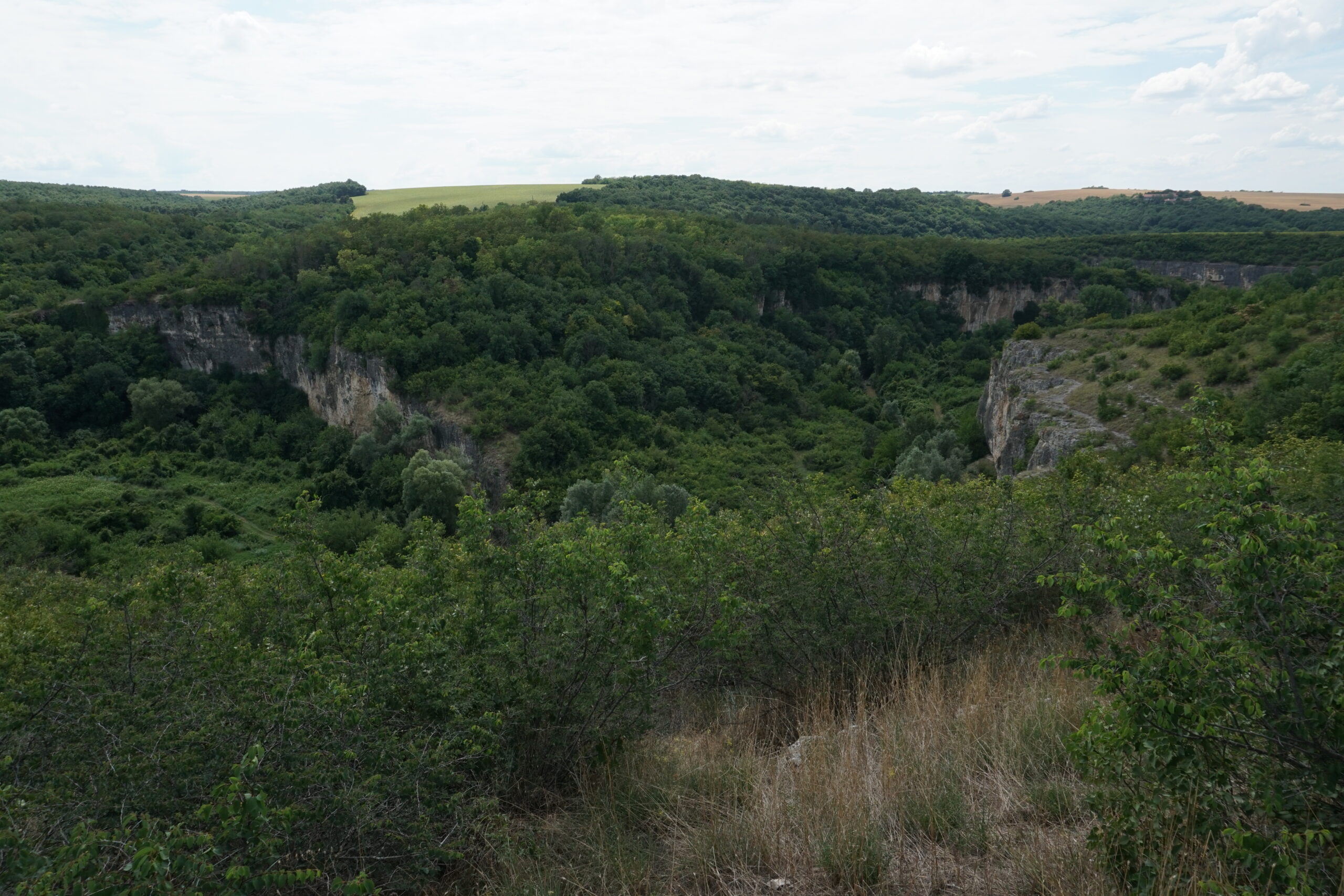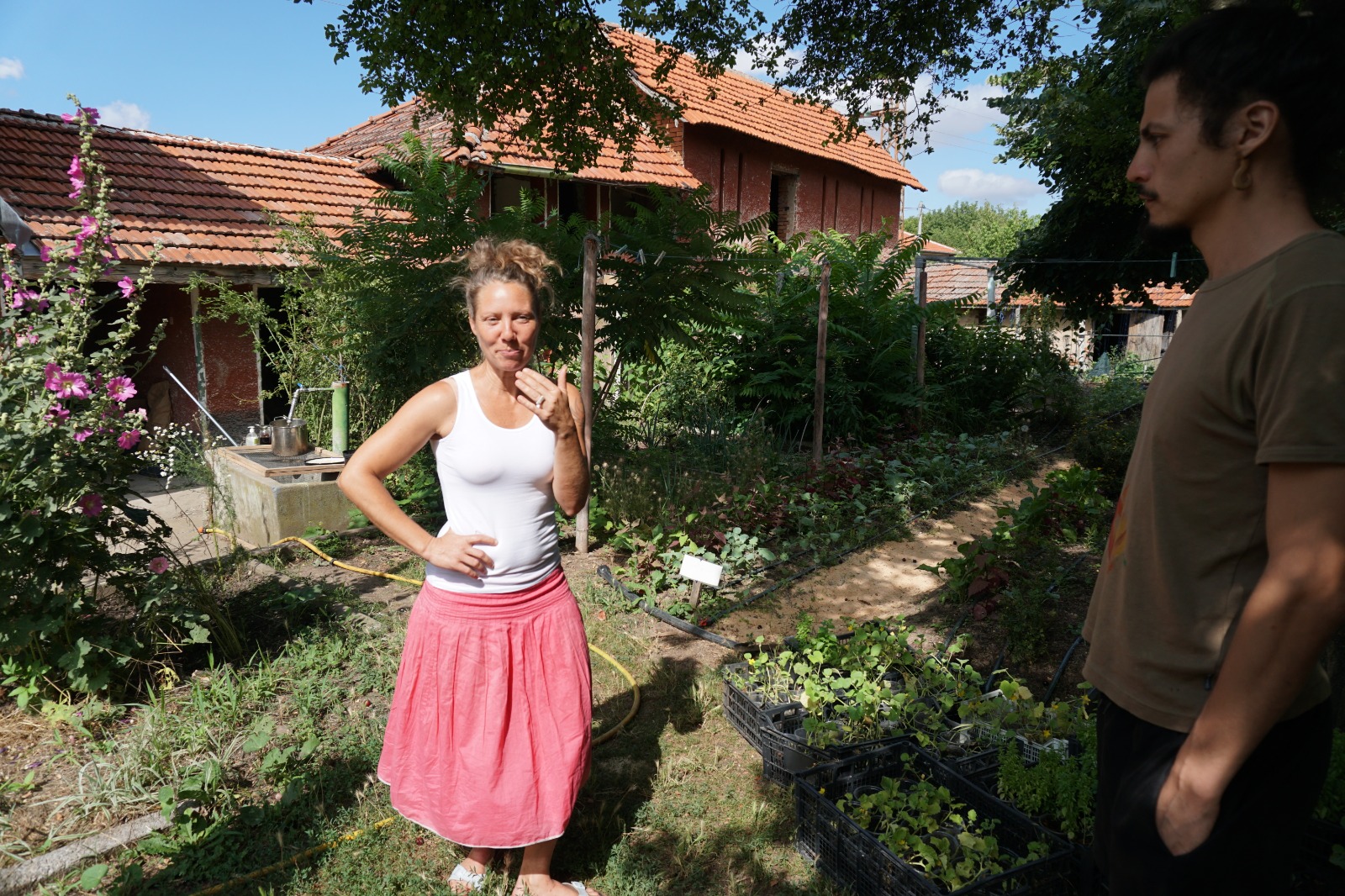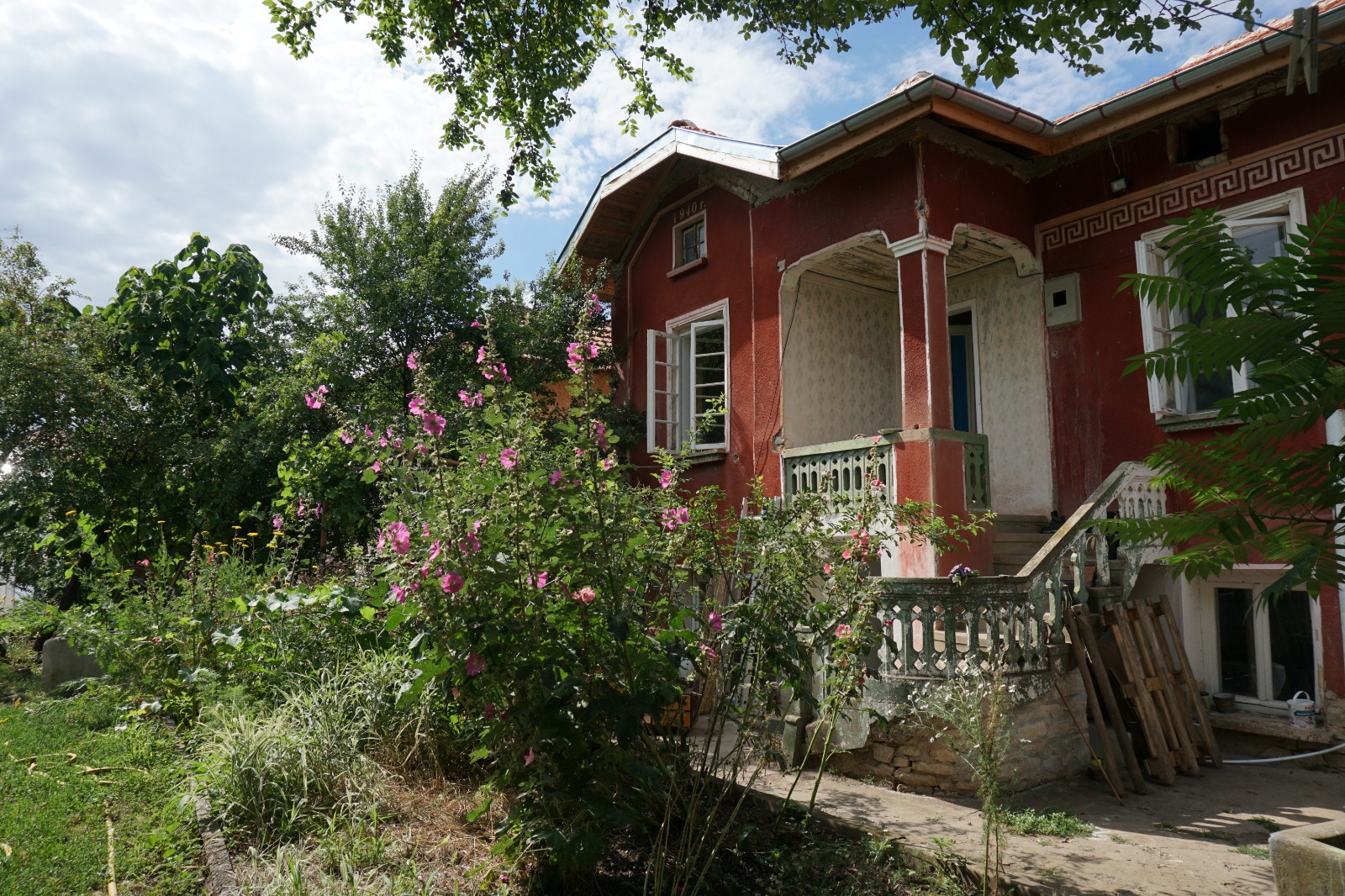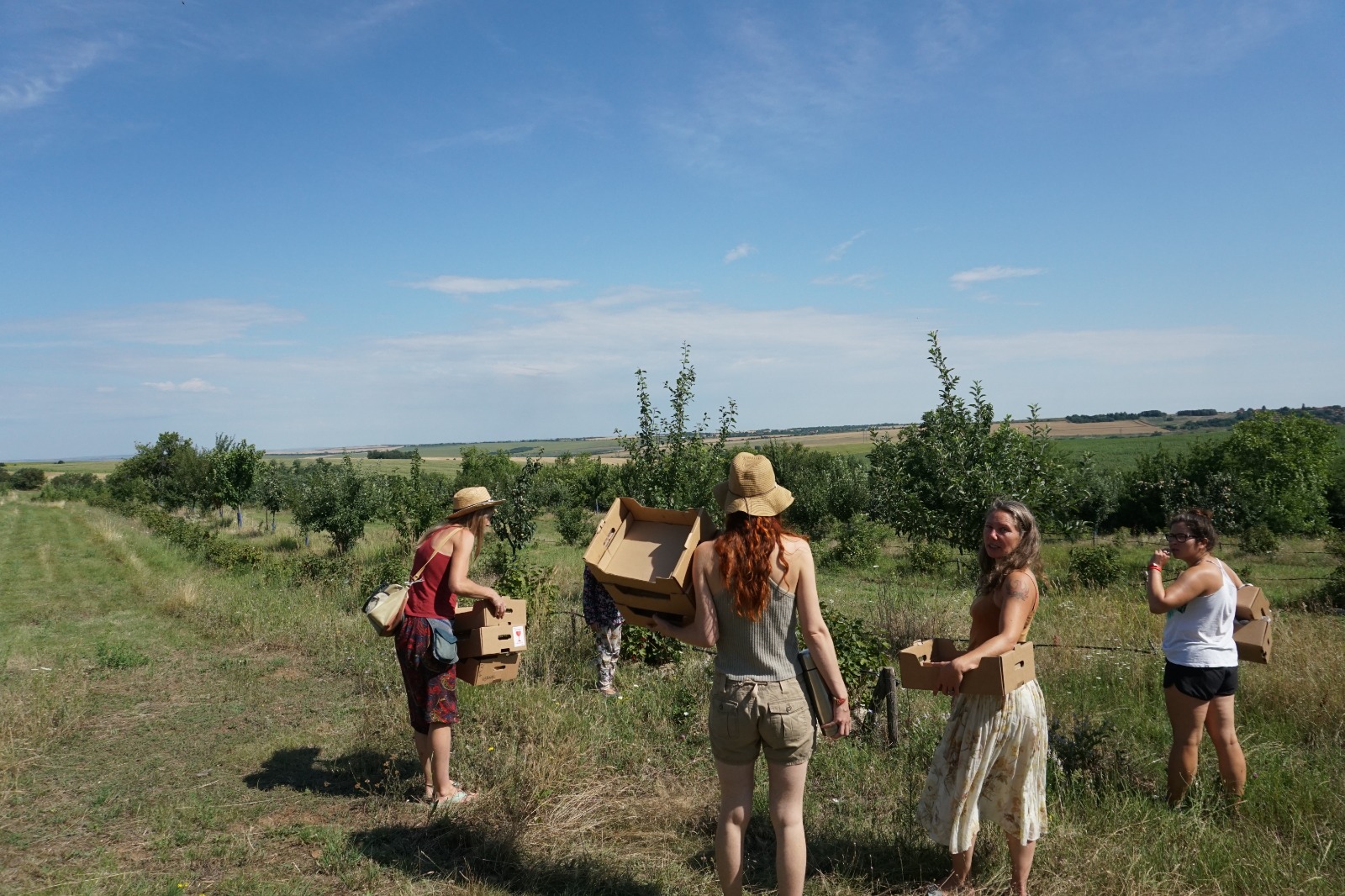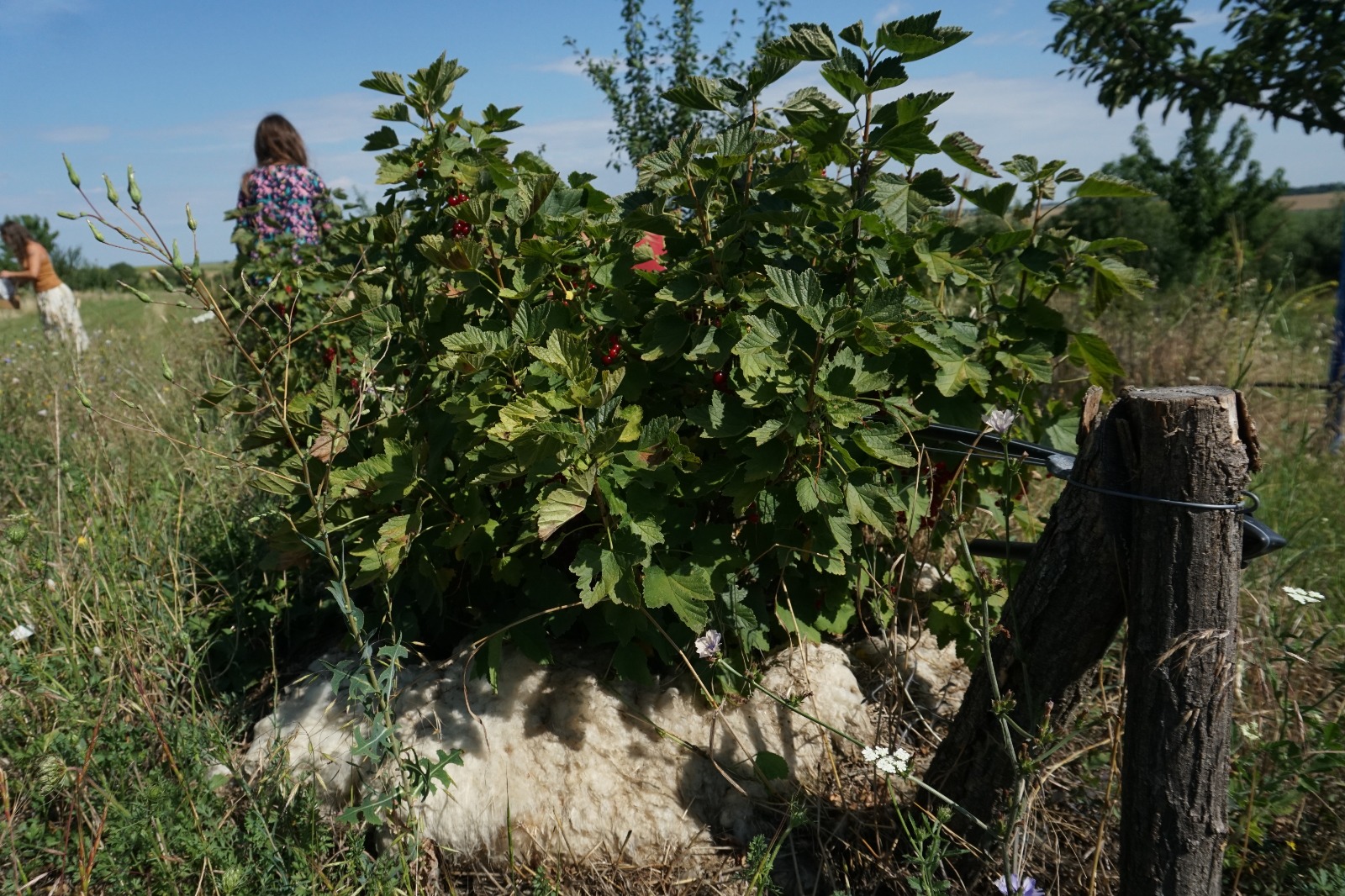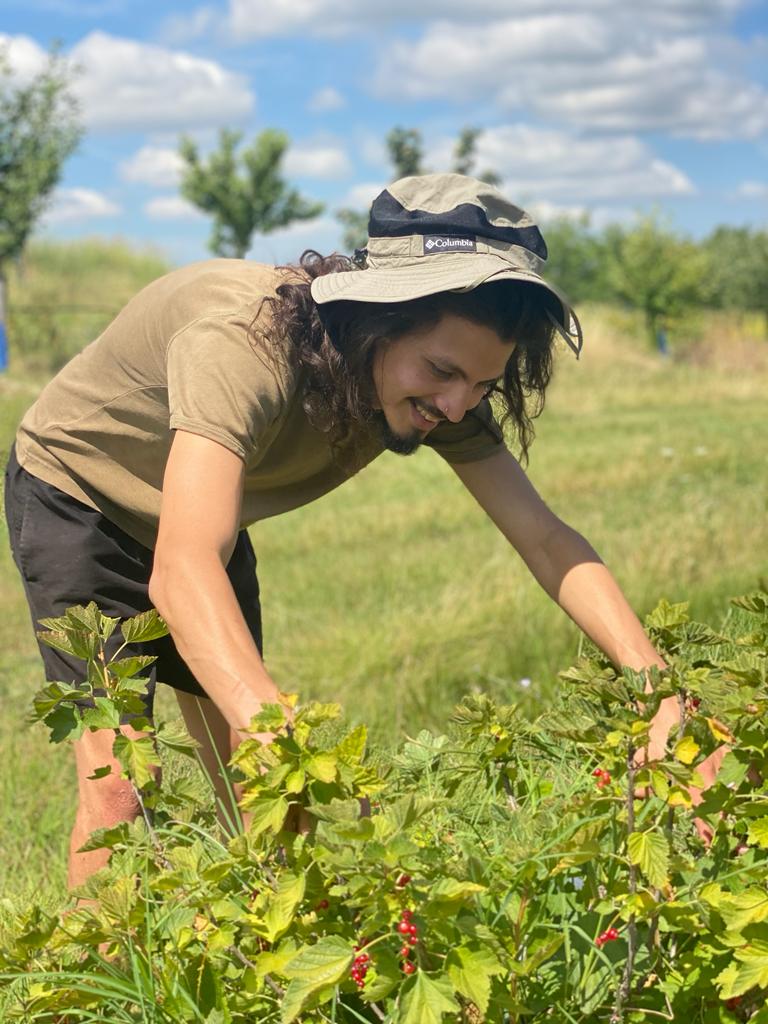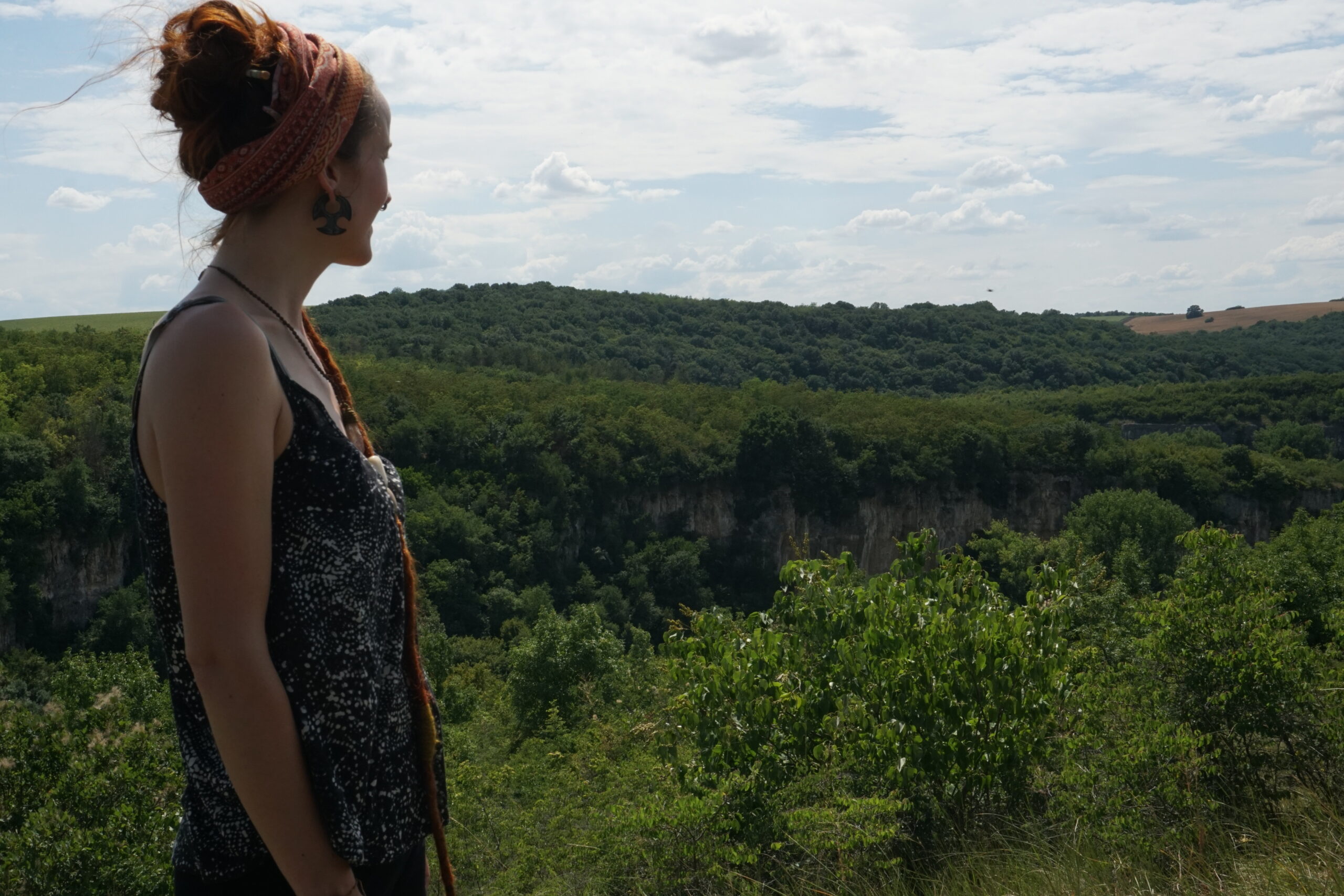by Renzo & Mali:
Hello there!
This time we are writing this blog together. After being reunited again, with wonderful experiences in our respective journeys, Renzo at Camping Kromidovo and Mali at her TPT in Croatia, we made ourselves ready for our first long-term stay in one of the project’s locations, the polyculture project “Venets Permaculture” in the village of Kromidovo.
Last week Tuesday, after some three hours north of Sofia we got out of the train and were warmheartedly welcomed in Pleven by Catherine, who then brought by car to Kromidovo. We later learned it to be a village where currently around 300 people live, quite a change from 1,28 million in Sofia! When arriving, we were again received warmly by the German Cathi and her 8-year old daughter Leila, who had just arrived some days before us and like us will stay for around two months as wwoofers.
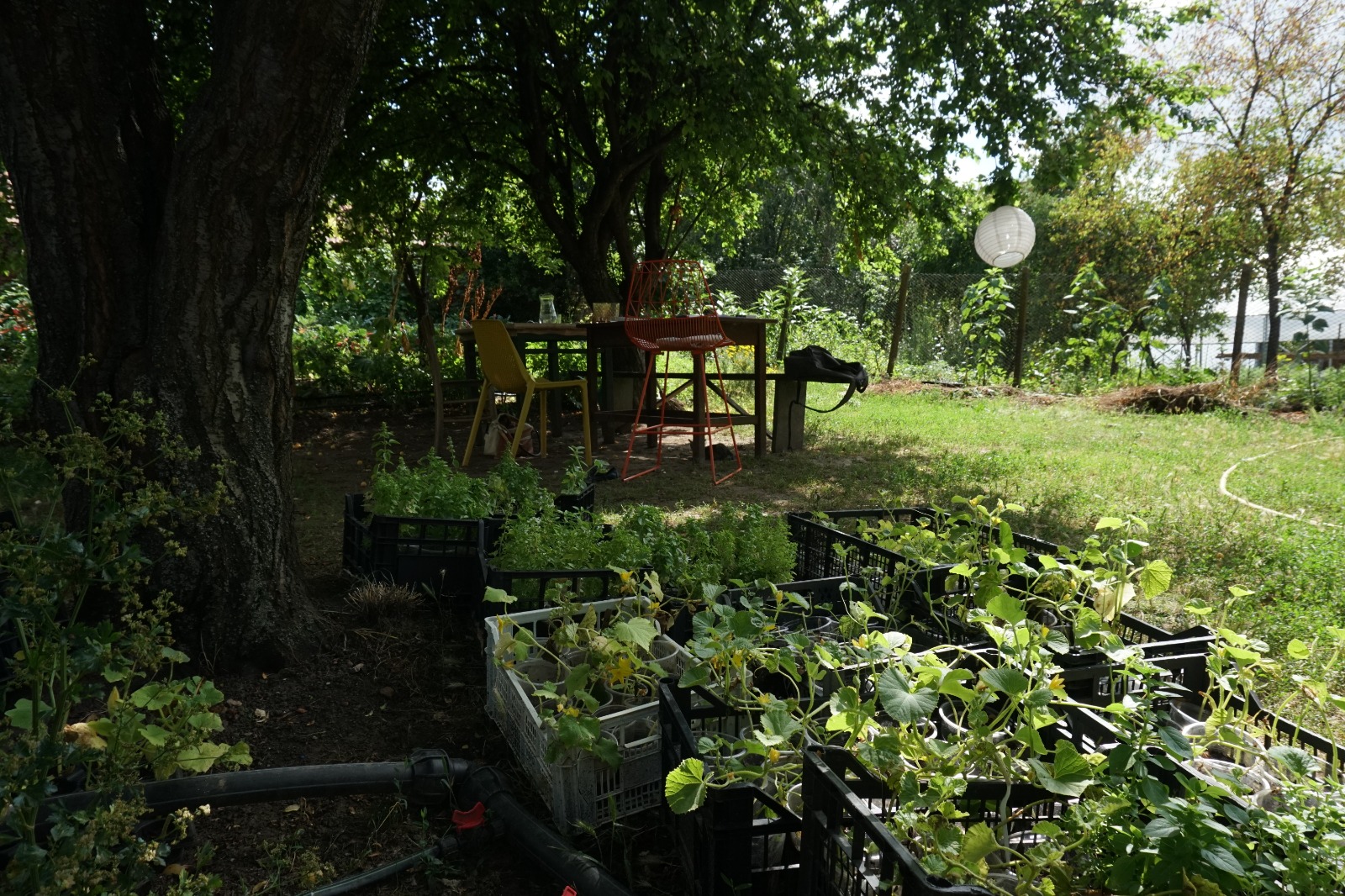
We spoke of the use and better integration of permaculture design at the different sites, seeing how we can better connect local input and output flows, and use of the resources around. In the gardens of Chervenate Kushta, Catherine for instance really wants to design a system for rainwater collection, combining this perhaps with the creation of a little pond, because besides water being scarce and becoming more expensive, it would be more sustainable to close the cycles and be self-sufficient on resources like water.
This is just one of the many ideas that Catherine has in mind. When she spoke of the idea to try start growing mushrooms, which customers might really be happy to find in their veggie box, Renzo immediately got excited. We decided that after having visited and being introduced to all of Venets’ sites, we would decide each of us what we want to take upon as a personal project connected to permaculture design improvements.
We also spoke about the opportunity for this garden and others to look more inviting and aesthetically and educationally attractive for visitors, as well as for the farm workers themselves. A first necessary step to take for that, is to do a big cleaning up of the outdoor areas and indoor reorganisation of the storage places where all kinds of tools, materials and food or seed storage over time had gotten really mixed up. So we decided that the first days to come we would focus mostly on cleaning and reorganisation.
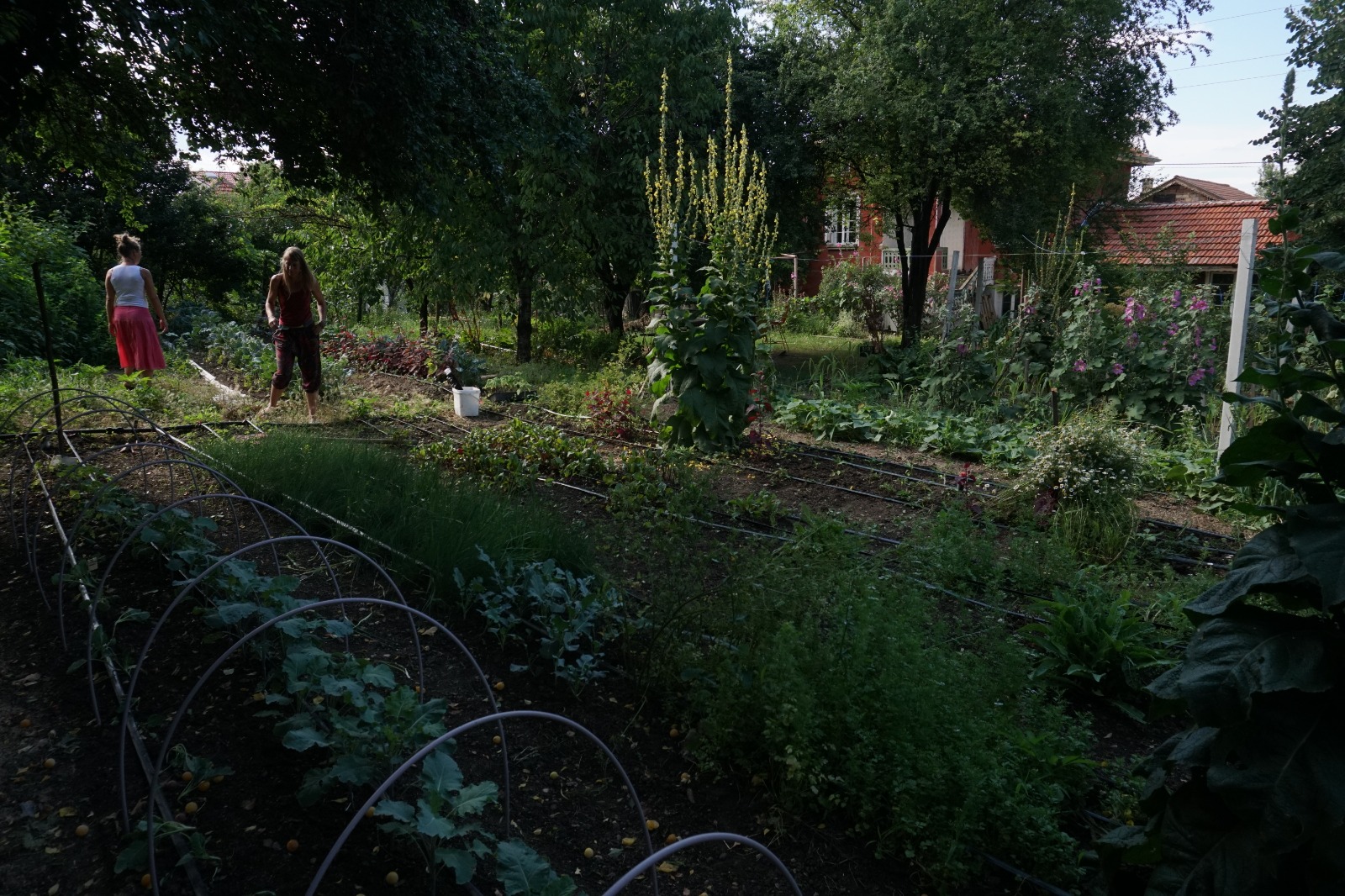
Besides talking about Venets itself, part of our ESC project is also about creating (solidarity) projects together with and for the community and youth in the village. We wrote down some ideas, to start with a meeting with the mayor of Todorovo. Another important person too is the librarian, a woman who is doing a lot of community and youth work in the village already. From our conversations with them, we will see what needs and ideas arise. We are looking forward to connecting more with the wider community, to step out of our ‘strangers’ role.
After our long and fruitful introductory meeting, Catherine took us out to one of the furthest away lands, called “Bostan Bair” (‘Bostan’ being a traditional name for a place somewhat outside a village where people grew crops like melons, onions, etc. in other words, plants that don’t need too much attention, and you might call Zone 3 in permaculture terms). This land they had obtained most recently, an hour’s ride away by car, close to the town of Debnevo. As it was predicted to rain and storm heavily that day and the days to follow, there was a high priority for the tomato plants there to be weeded and then mulched after with straw.
Like many other projects on Venets’ lands, Catherine wants to experiment with these tomatoes to see whether her plants can be more self-sufficient and resilient while intervening the least as possible. Her plan is to not irrigate nor prune the tomatoes and only mulch them really well to keep the soil moist and avoid weeds to grow. This will hopefully push the plant to seek for water deeper into the ground, and grow more stable without human support. One of the reasons for not irrigating on the surface, is also to avoid the spread of fungi which are a common problem for tomato plants. By not subjecting the plant to pruning, the fungus does not come into contact with the wound.
On Wednesday evening after dinner, Catherine sat us down under the grapes at the cosy outdoor corner of the Red House and told us a big part of the history of Venets, how it all started and how she, Catherine, ended up in Todorovo. A long and really interesting story that we would really love to share with you in the form of a more official interview, maybe as a video or as a podcast. We feel like it should be Catherine’s voice that you should hear, much more inspiring than a second-hand summary 😉 So we’ll soon planning a moment for that!
On Thursday, we finally had our first online Bulgarian language class. The teacher is amazing; sparks of his passion for teaching and continuous dry jokes flying off our laptop screen 🙂
A day later, we could welcome Vyara into our team, the first time for Mali and her to meet each other in person finally! She was introduced to the plans we had set out and we went out that morning to harvest (and feast on) red currents, that grew on “the Dry Valley” (Sucho Dol), a site just 15 minutes walking outside of the village, that has a big pond filled by rain water collected from the roof of a big open structure, which irrigates the fruit orchard and fine fruits growing there. Under this structure, Catherine also is currently storing big bags full of unwashed sheep wool, a material that she had started to use for mulching the fruit bushes and other plants on the different pieces of land, with great results so far.
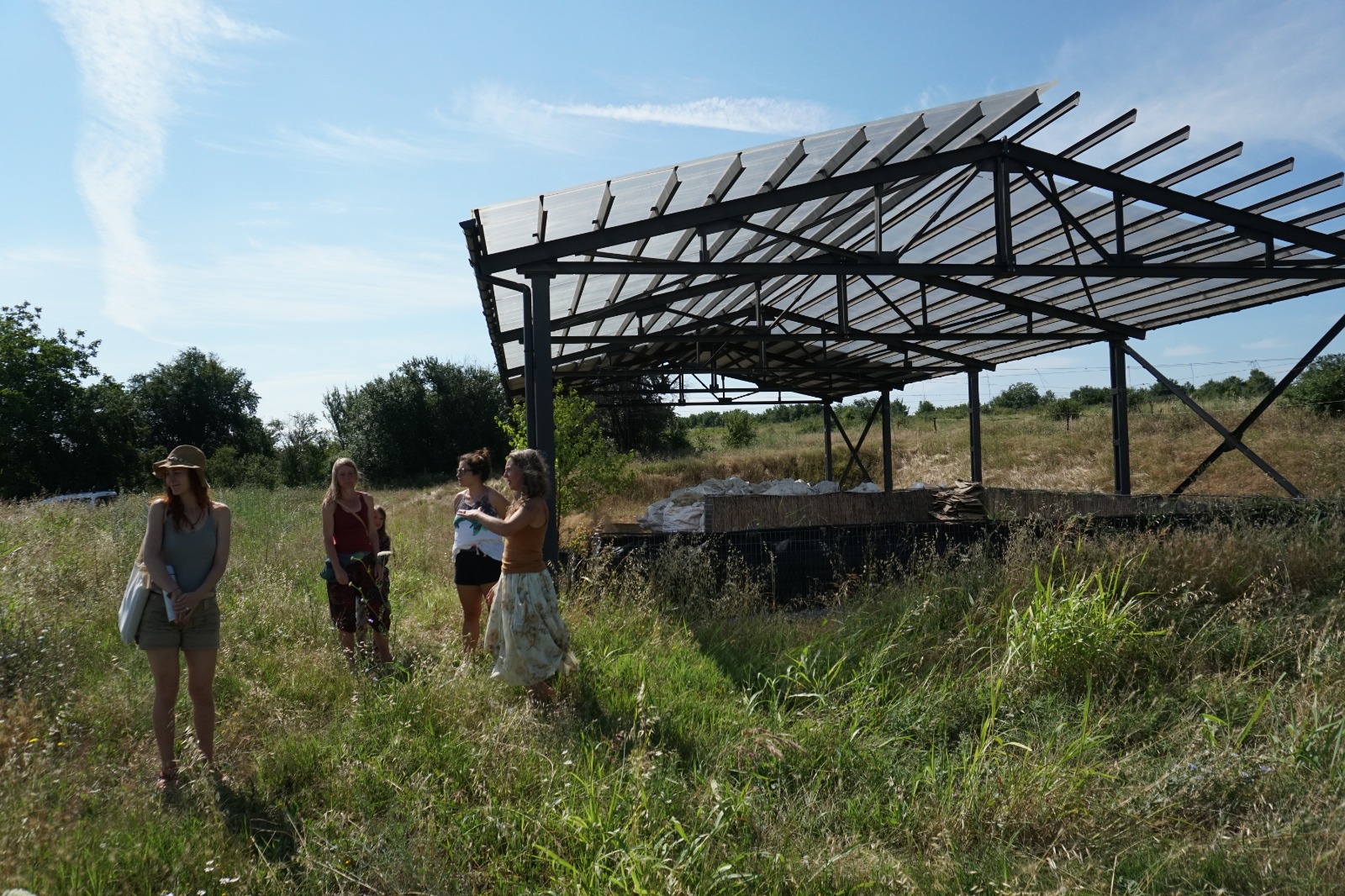
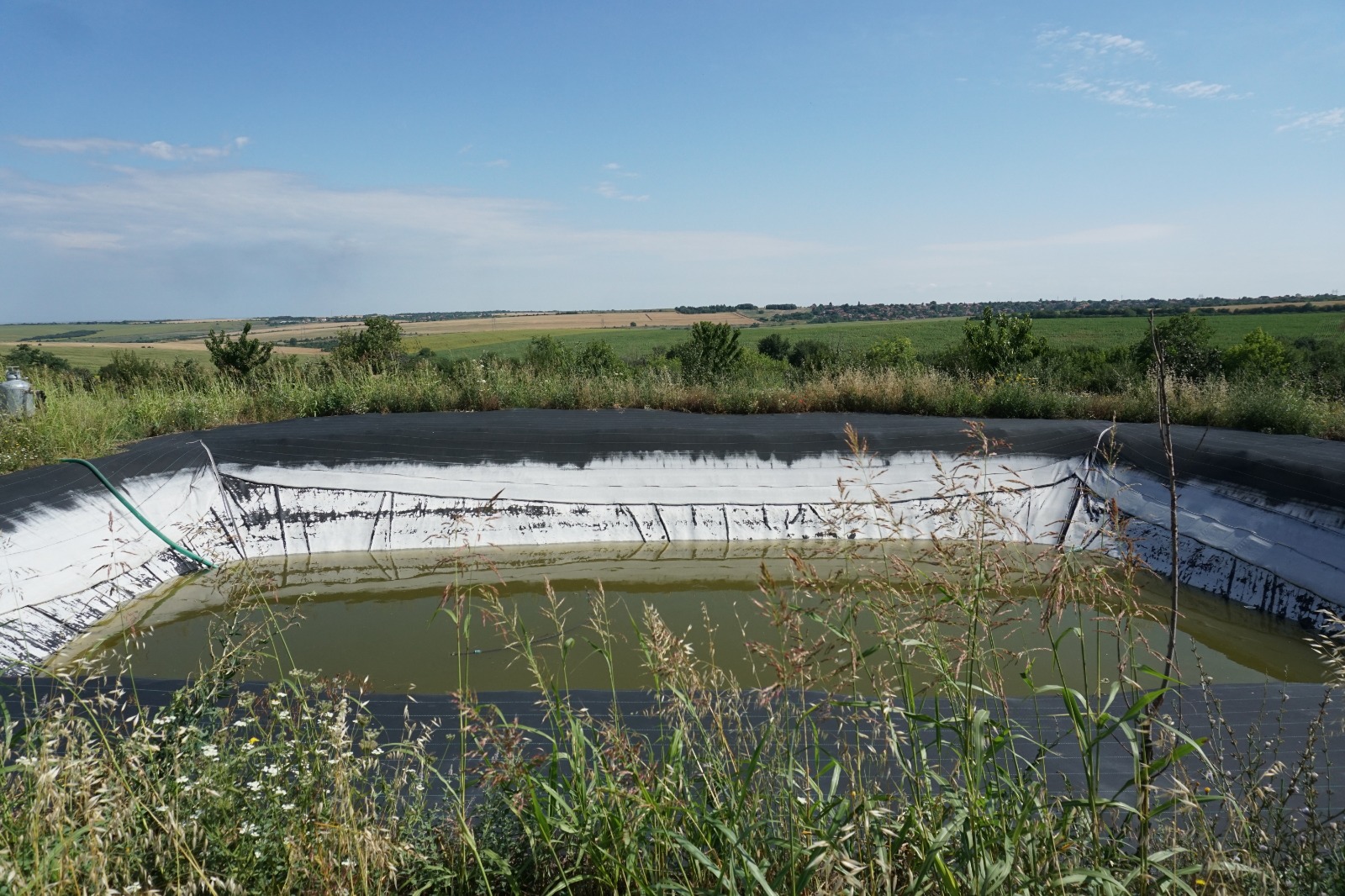
The two of us topped of this really nice first week with a hike to the canyon, Chernyalka, supposedly an hour walking away from Todorovo. We picked the wrong path at some point and ended up at a point from where we could actually look down onto the canyon, and the little river running through it. A beautiful sight! And definitely worthwhile catching the ‘right’ path next time to discover the canyon from down below.
